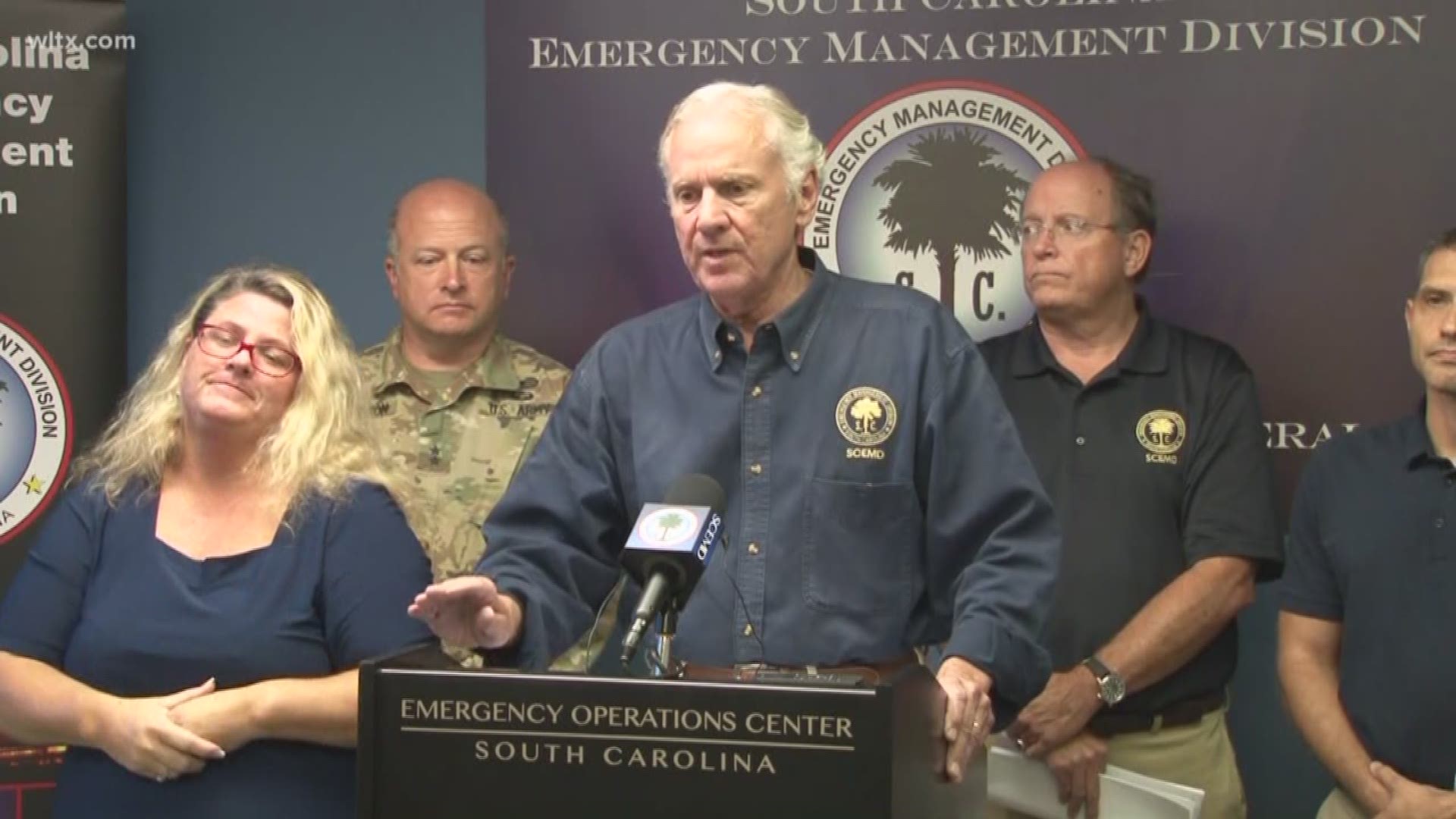COLUMBIA, S.C. (WLTX) - South Carolina Governor Henry McMaster is telling the people of his state to start making preparations now as Hurricane Florence could affect the state later in the week. McMaster gave an update Sunday afternoon on his state's emergency response effort from the coordinating operations center in West Columbia.
McMaster said at this point, while the track of the storm is still uncertain, people in the state should act as if it's coming here. "Assume that a major hurricane is going to hit smack dab in the middle of South Carolina, and is going to move inland," McMaster said.
The state did get some good news as the track has shifted further north, which, if that holds up, would mean less impacts. But there's still time for that to change.
TRACK FLORENCE | Current projected path, spaghetti models
"We're going to have a lot of rain, and a lot of wind," he said. "We don't know how much, we can't predict yet."
McMaster said he's already submitted a request to President Donald Trump to issue a federal emergency declaration, which would allow in advance for federal money to be released to cover the state's expenses for manpower and cleanup. Kim Stenson, the director of the South Carolina Emergency Management Division, says a FEMA coordinating officer will be in the state Monday to help as needed.
"Prepare for the worst and expect the best," McMaster said.
Local and state leaders are already working together to make preparations, but he said he's asking people to make their own plans. Those living in areas near the coast should being alerting their family members that they might have to leave suddenly, reviewing their emergency plan, and getting their medications and supplies such as flashlights and food. While no evacuations are in effect, he says people should be ready to go if the word comes from state and local leaders.
"Take care of your pets, be sure to lock things up, because you may not be coming home for several days," McMaster said.
To that end, Horry and Georgetown Counties, both near Myrtle Beach, have already declared a state of emergency. Earlier in the day, the South Carolina's Emergency Management Division announced they had moved to what's known as "OPCON 3", an elevated state of readiness in case there's a natural disaster. A day earlier, they were at "OPCON 4," a lower level. In their five-level structure, OPCON 5 is normal, everyday conditions while OPCON 1 is a full-on natural disaster.
"OPCON 3 status means that agencies are preparing for the possibility of a large-scale disaster or emergency situation as we all monitor the Florence forecasts," the agency said in a statement. It also means the agency's operation nerve center is now staffed.
Already, Maj. Gen. Bob Livingston of the South Carolina National Guard says the following resources are on standby and are waiting for deployment:
- 2,702 total are on standby
- 800 National Guardsmen will be on active duty tomorrow (3000 are currently drilling and are available by request)
- 285 State Guardsmen
- 1,617 law enforcement officers (SLED, DPS, PPP, and local law enforcement)
On Saturday, McMaster issued an executive order declaring a "state of emergency" in South Carolina. That may sound alarming, but what it actually means is that the governor is calling on state agencies to begin getting their resources together in the event of an emergency in the state.
Florence is currently a Category 1 hurricane with winds of 75 MPH, but is expected to strengthen to a Category 3 'major hurricane' before a potential U.S. landfall. That means it would have wind speeds greater than 111 miles an hour.
Current computer modeling is still unsure of where the storm could go, but the 'cone of uncertainty' from the National Hurricane Center includes South Carolina, North Carolina and Virginia.

